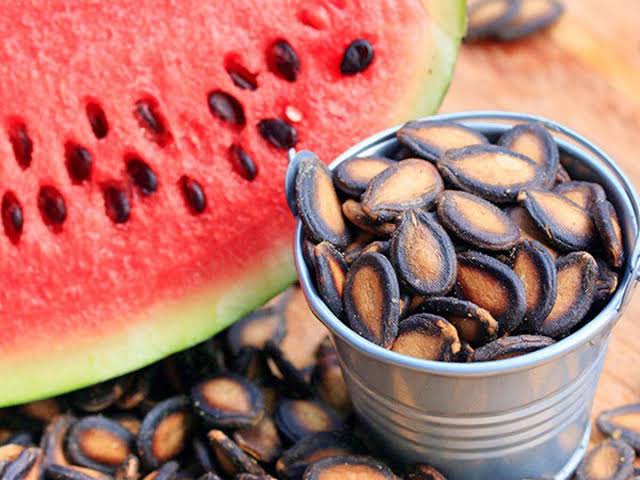Watermelon seeds are often overlooked as a nutritious and healthy snack. While many people discard them as waste, watermelon seeds are packed with nutrients, minerals, and antioxidants that offer numerous health benefits.
In this article, we will explore the top 5 health benefits of watermelon seeds.
1. Rich in Protein and Amino Acids
Watermelon seeds are an excellent source of protein and amino acids, making them an ideal snack for vegetarians and vegans. They contain about 30-40% protein, which is higher than many other seeds and nuts. The amino acids present in watermelon seeds, such as arginine and glutamic acid, help to build and repair muscles, making them a great post-workout snack.
2. Antioxidant and Anti-Inflammatory Properties
Watermelon seeds are rich in antioxidants, including vitamin E, vitamin C, and beta-carotene. These antioxidants help to protect the body from free radicals, which can cause oxidative stress and inflammation. The anti-inflammatory properties of watermelon seeds may also help to reduce the risk of chronic diseases, such as heart disease, diabetes, and cancer.
3. Supports Heart Health
The seeds of watermelon are a rich source of magnesium, potassium, and zinc, which are essential minerals for maintaining healthy blood pressure and cholesterol levels. The magnesium present in watermelon seeds helps to relax blood vessels, reducing blood pressure and the risk of heart disease.
Additionally, the potassium in watermelon seeds helps to lower cholesterol levels and prevent the formation of blood clots.
4. May Help to Regulate Blood Sugar
Watermelon seeds have been shown to have a potential role in regulating blood sugar levels. The seeds contain a compound called citrulline, which has been shown to improve insulin sensitivity and reduce blood sugar levels. Additionally, the fiber present in watermelon seeds may also help to slow down the absorption of sugar into the bloodstream, reducing the risk of developing type 2 diabetes.
5. Supports Healthy Digestion
Watermelon seeds are a good source of dietary fiber, which is essential for maintaining healthy digestion. The fiber present in watermelon seeds helps to promote regular bowel movements, prevent constipation, and support the growth of beneficial gut bacteria. Additionally, the seeds contain an enzyme called papain, which helps to break down proteins and aid digestion.
Conclusion
Watermelon seeds are a nutritious and healthy snack that offers numerous health benefits. From providing protein and amino acids to supporting heart health and regulating blood sugar levels, watermelon seeds are a great addition to a healthy diet.

